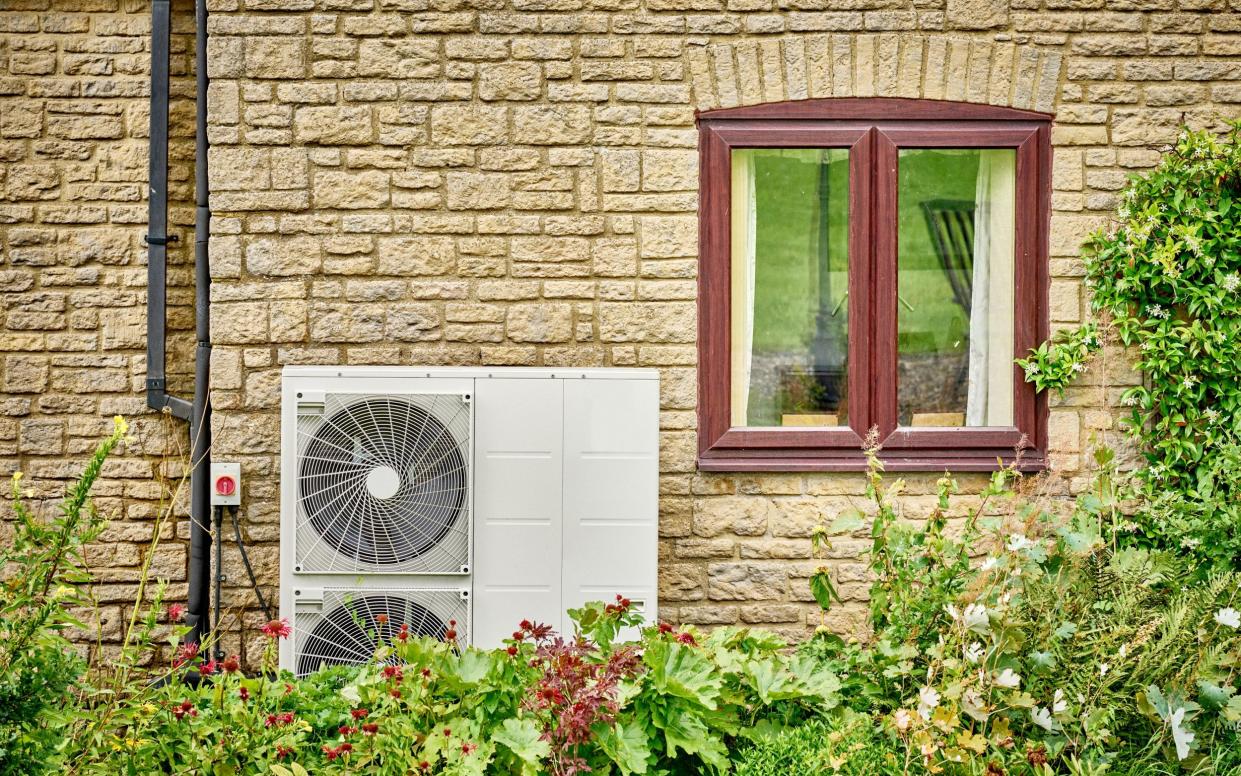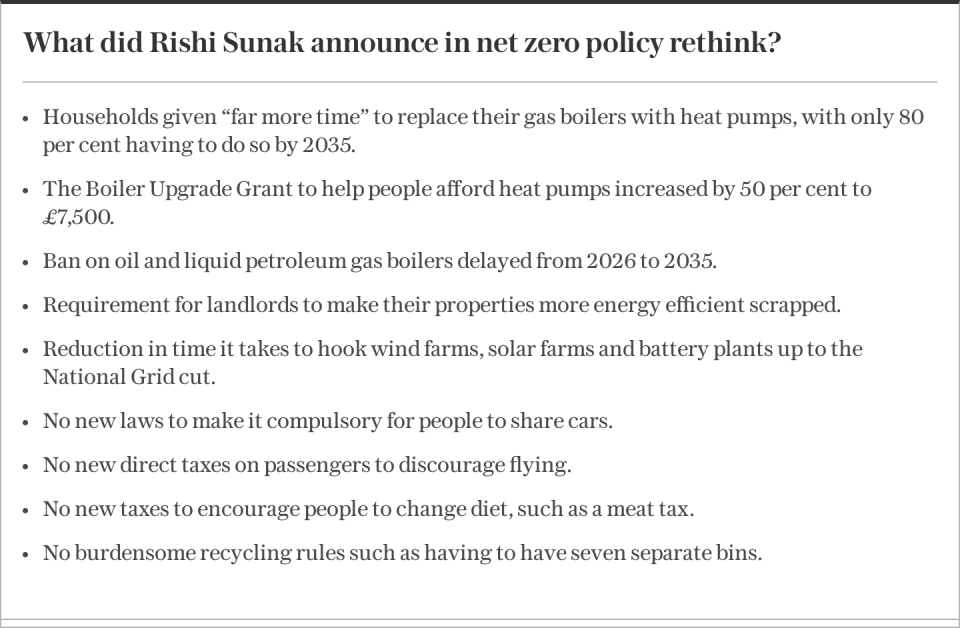The Tories have capitulated to the heat pump extremists

We have long been told that the costs would be taken into account along with the benefits. We have been reassured that the burden would be eased on households and small businesses. And, more recently, we were led to believe that some of the more draconian measures would be scrapped.
Following Rishi Sunak’s reset of some net zero plans earlier this year, there was optimism that the Government was no longer capitulating to the more extreme wing of the green movement.
Yet, in the last week alone, we have heard reports of bans on gas hobs, a change to the rules to encourage uptake of heat pumps that no one wants, closures of refining plants and demands for even more taxpayer cash for electric vehicles.
In reality, the iron grip of the Green Blob is as tight as ever – and until the Conservatives find a way of breaking free, it will squeeze the life out of the economy.
By now, the UK was meant to have switched from the camp of the net zeros to that of the net sensibles. The Prime Minister had, quite rightly, recognised that turning a nation which accounts for only 1pc of global carbon emissions into a global leader on fighting climate change was becoming increasingly unaffordable.
The costs for hard-pressed households and small businesses, in particular, were simply too high.

He pushed back the deadline for banning the sale of petrol-driven cars from 2030 to 2035 (bringing it in line with the EU), relaxed the target for phasing out gas boilers, and scrapped plans to start fining landlords if they didn’t pay for expensive energy-saving upgrades.
Instead of leading a green crusade, the UK would sensibly assess the costs and benefits of each plan, wait to see what worked in the rest of the world, and then decide what would be cost effective in this country.
Yet in the last week alone, we have witnessed another whole series of crazy green targets.
In Oxford, the local council has unveiled plans to ban gas cookers and boilers in new homes from 2025, a decision that will drive up the cost of building in a part of the country where extra housing is desperately needed (and where life sciences and tech companies could be thriving if only people had somewhere to live).
If that goes ahead, we can be confident that virtue-signalling councillors will mimic the policy right around the country.
On heat pumps, rules have been relaxed so that people can place the cumbersome beasts closer to boundary walls regardless of how much noise it might cause to neighbours.
Instead of waiting for a better carbon-neutral technology to arrive, and there are plenty in development, the Government is insisting that we press on with a vastly expensive switch to heating systems that hardly work and no one wants.
In an Autumn Statement that was meant to be pro-business and pro-investment, the Chancellor still felt compelled to dish out another £2bn in subsidies to the auto industry for the switchover to electric vehicles.
That is despite falling sales to private buyers, as it becomes increasingly clear they may well be the wrong way of switching to carbon neutral transport.
Huge new subsidies have been offered earlier this month to the wind industry to keep it afloat, even though we have been lectured for years that it is the cheapest form of energy there is. It is hard to see how any of that fits into a strategy of switching to a more moderate policy on net zero.
In reality, the green fanatics are just as influential as they have ever been. The Government has managed to chip away at it very slightly. But it is having only a marginal impact.
The problem is profound and far-reaching. A range of bodies, where greenery is institutional, have taken control of the climate change agenda and keep ramping up every existing target.
The devolved administrations appear more interested in appeasing their green allies and supporters than protecting jobs and the local economy. And civil servants simply shrug off the change of government policy as irrelevant, while the legal system has been used by climate activists to impose mandated targets.
No one – well, almost no one – disagrees that climate change is important nor that we need to reduce carbon emissions. But that doesn’t mean that it can be achieved without taking full account of all the costs.
It doesn’t mean that the Government, despite its dire track record, should choose which technologies are best to achieve that. And it doesn’t mean that it should be done by picking arbitrary targets out of thin air at a climate change conference and sticking to them even when it is glaringly obvious that they are no longer realistic.
Under Sunak’s brief reset, the UK had an opportunity to embrace a more sensible approach, as indeed President Macron is doing in France, with plans to ramp up nuclear power, and even the Social Democrat-Green coalition in Germany, with old coal mines reopened as a backup for intermittent wind power.
We could have settled on a steady reduction in carbon emissions, but combined it with energy security, and made sure that costs were kept under control for households, and that industry had the power it needed to remain competitive on the global market.
Instead, the Green Blob has doubled down on a headlong rush towards net zero regardless of the expense.
Until that changes, the economy will keep on getting crushed by extreme environmentalism – and whatever ministers promise there is very little sign of that changing any time soon.

 Yahoo News
Yahoo News 
